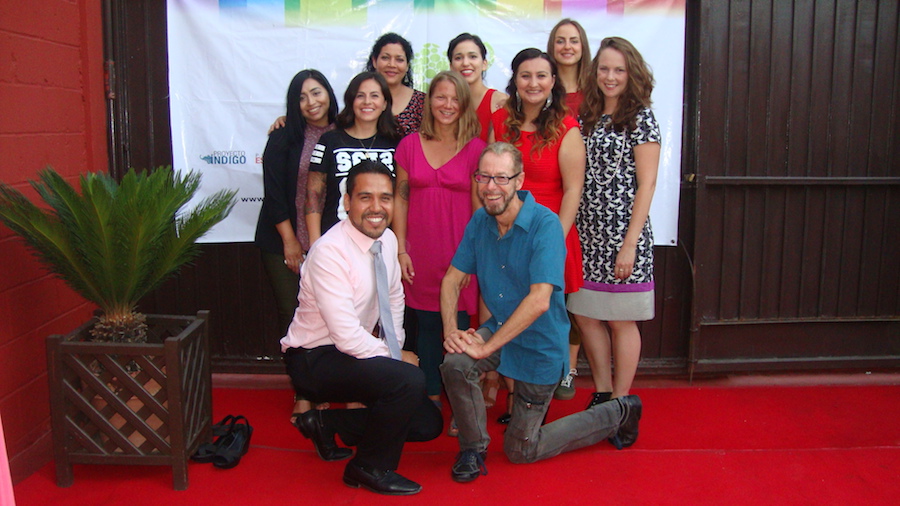
UC Davis team documents deportee narratives
The Humanizing Deportation project is a collaboration between UC Davis and Colegio de la Frontera Norte, in Tijuana, Mexico, to document personal stories of deportees expelled from the United States. The narratives were collected last summer over the course of a month-long field study.
Robert Irwin, a professor in the Department of Spanish and Portuguese at UC Davis, co-leads the Humanizing Deportation project.
“Humanizing Deportation is a digital storytelling project,” Irwin said. “Its objective is [to] help disseminate more true, nuanced and humanized idea[s] about deportation than what we hear about in the media.”
Irwin said that the purpose of the project is to provide a more genuine view of deportation.
“A lot of people have opinions about deportation and about people getting deported without knowing up close what it is like,” Irwin said. “We devised this project in order to [deliver] to the media and the world through our website a more real view of what is happening.”
Irwin also discussed why Tijuana was chosen for the study.
“The project was conceived in collaboration with people here at UC Davis and Colegio de la Frontera Norte, which is a university in Tijuana,” Irwin said. “We chose Tijuana as a field site from which to launch the project because it receives more deported people than any other city in Mexico and probably the world, with something like 350 [people] arriving there everyday.”
Irwin stated that videos by deportees gave them the ability to tell their personal stories.
“We are simply giving a platform for people in the [deportation] community who have something they want to say [and] to say it in an audio-visual form,” Irwin said. “We facilitate the production but we don’t control the content. They are not our stories, and we don’t select just certains kinds of people — anyone who wants to say something about deportation, about their personal experiences with deportation, is invited to do so on our platform.”
Irwin also talked about how issues related to deportation have resulted in homelessness, substance abuse and the breakup of families.
“It is definitely a humanitarian issue,” Irwin said. “Another problem that occurs in Tijuana, unfortunately, is many of the people end up living in shelters. They have difficulty getting employed. Some of them fall into drug addiction or other forms of substance abuse. Some of them fall into homelessness or semi-homelessness where they are drifting [from] shelter to shelter.”
Lizbeth de la Cruz Santana, a second-year Ph.D. candidate in Spanish as well as a member of the Humanizing Deportation team, further discussed the separation of families caused by deportation.
“We noticed when we were there [that] you could see more men who have been deported and you can see more women and children as well,” de la Cruz Santana said. “Dr. Irwin would encourage us to go to a shelter. There you would see the reality of the whole issue. They come with a deported mom and dad or one of [the parents] stays behind, so you then start seeing families being separated. For me, that was one of the biggest issues with deportation.”
De la Cruz Santana also talked about how people in the United States often do not see the real situation in Tijuana.
“It is a different type of way in which we talk about [deportation] here in the United States, because it is a phenomenon we see that is going on,” de la Cruz Santana said. “But once you go into Tijuana, you see the reality of how their lives are and how they try to get out of that state.”
Marinka Swift is a fourth-year Ph.D. candidate in sociolinguistics at UC Davis and another member of the team that went to Tijuana. Her interest in the project stemmed from how the Spanish language is used by deportees compared to that of native speakers in Mexico.
“I was looking for opportunities to learn about people’s language experiences in Mexico — people who have been deported and repatriated back to Mexico,” Swift said. “I was interested in the linguistics experiences of the deportees [and] I was curious about what languages people are using after they are deported. I know that many people who are deported are not necessarily fluent in Spanish or they will simply choose that they would rather be speaking English, because it was their dominant language after spending so much of their lives in the United States. I wanted to get a sense of how people feel about Spanish and English and looking at that through the lens of human rights and linguistic rights.”
Sarah Hart, a second-year Ph.D. candidate in performance studies at UC Davis and another member of the field study team, said she wanted to understand the plight of the deportees and how to express their experiences through her work.
“I come from a background in socially-engaged performance,” Hart said. “I was interested in how to work with narratives or testimonies that people experienced in a creative way, and how to express those experiences to a public audience in order to raise awareness around social issues.”
When asked how she would describe her experience in Tijuana, Hart said she “would tell people to be informed and to question where they are getting their information [from] and why they are being told the things they are being told about people. And to exercise some empathy.”
The Humanizing Deportation narratives can be viewed at http://humanizandoladeportacion.ucdavis.edu/en/.
Written by: George Liao — campus@theaggie.org









